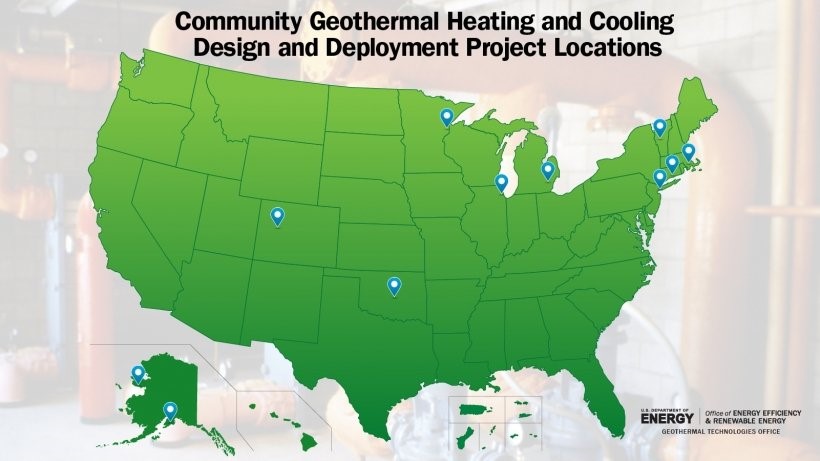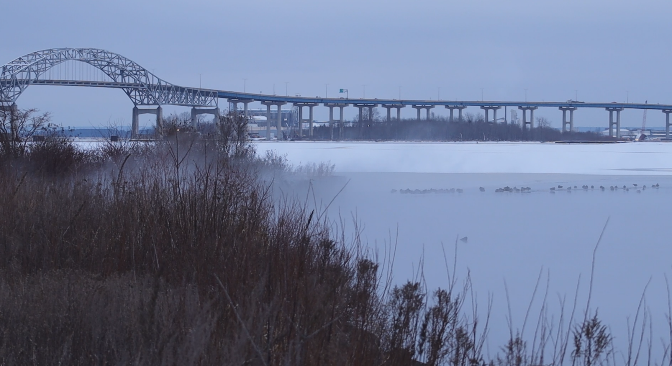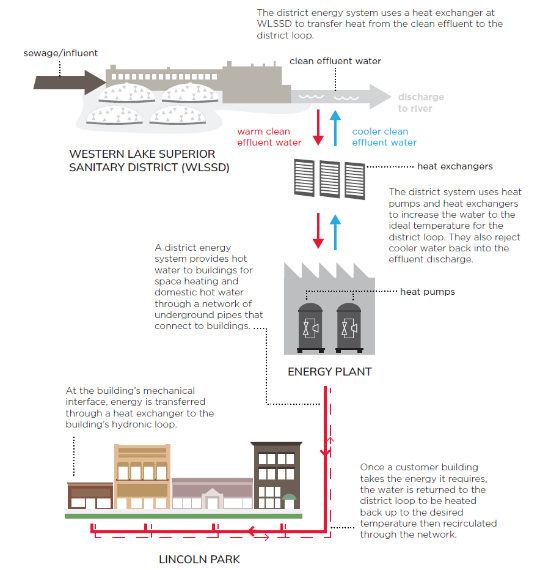Community Geothermal

In April of 2023, the City of Duluth was one of 11 communities selected for a grant from the Department of Energy’s Office of Energy Efficiency and Renewable Energy (EERE), as part of a $13 million federal investment in communities pursuing geothermal heating and cooling system projects. Under this initiative, the City of Duluth was granted $700,000 to help design a geo-exchange district energy system, with the assistance of local non-profit Ecolibrium3 and engineering consultant Ever-Green Energy. The design project will explore the creation of a brand new geo-exchange district energy system in Lincoln Park, as well as connecting a heat source to Duluth’s currently existing district energy system – known as Duluth Energy Systems (DES) – which serves Downtown and Canal Park. Central to the design is the question of equity and community benefit. How could a new district energy system benefit the neighborhood of Lincoln Park?

What makes Duluth’s project unique is the use of wastewater effluent as a heat source. Currently, the wastewater treatment plant in Duluth discharges approximately 35 million gallons of effluent per day into the St. Louis River. With an average temperature of between 85°F and 90°F, this wastewater effluent is a rich source of energy that is otherwise being wasted. This warm discharged water prevents any ice from forming in winter, as seen in this image provided by The Western Lake Superior Sanitary District (WLSSD), who manages the wastewater treatment plant in Lincoln Park.
Utilizing a system of pipes, heat exchangers, and heat pumps, the thermal energy from effluent can be captured and used to heat water, which can then be cycled through a network of buildings to fulfill their heating needs and decarbonize their heat source.

Currently, no large-scale district energy system that utilizes wastewater heat recovery exists in the United States, meaning Duluth could be leading the way in an innovative source of green energy. The effluent could also be utilized by DES, providing a source of heat for the existing district energy system that does not rely on fossil fuels.
Since being awarded the grant, the Sustainability Office at the City of Duluth was able to hire a Geothermal Project Coordinator – Alayna Johnson. As of spring 2024 – with the assistance of contractors – the design of the geothermal system is underway, as is local workforce development research. In March, Sustainability Officer Mindy Granley and Geothermal Project Coordinator Alayna Johnson attended the Thermal Energy Network Symposium in Rochester, Minnesota, where they learned about the technological and workforce-specific needs for implementing geothermal systems. In April, the Sustainability Office also applied for implementation funding for this project through the EPA’s Carbon Pollution Reduction Grant. Additionally, Duluth Energy Systems and Sustainability Office staff will be attending Duluth EcoFest on April 20th, 2024, where they will be available to answer questions about the project.
Come fall 2024, a full design of the geo-exchange district energy system will be completed and reviewed, allowing the City of Duluth to be competitive for future federal funding opportunities. There has been significant community interest in this project and we will be sharing future updates here.




